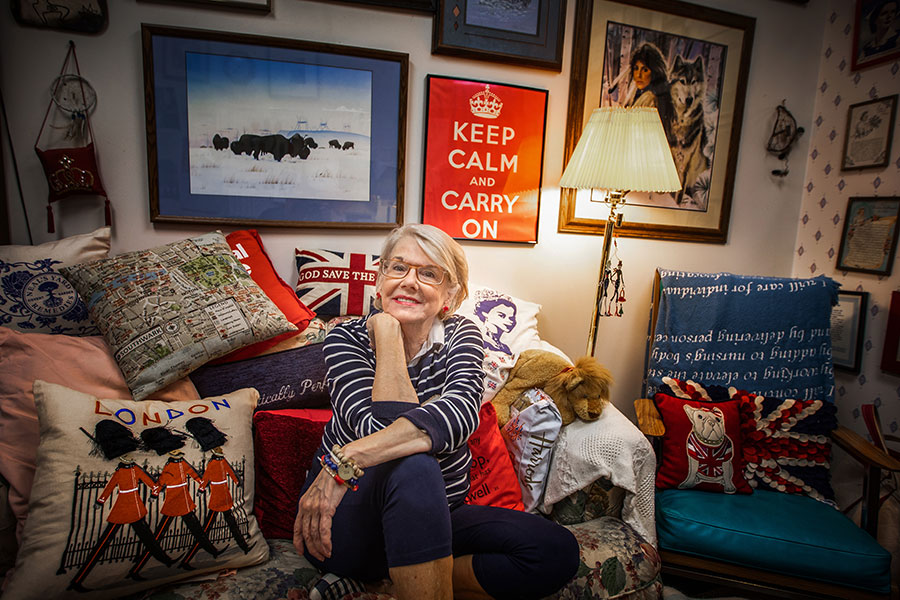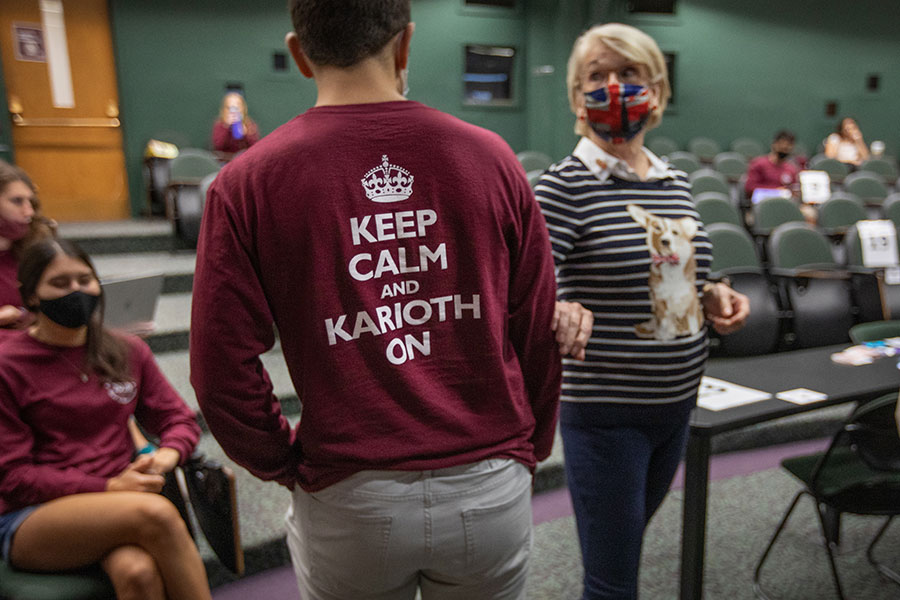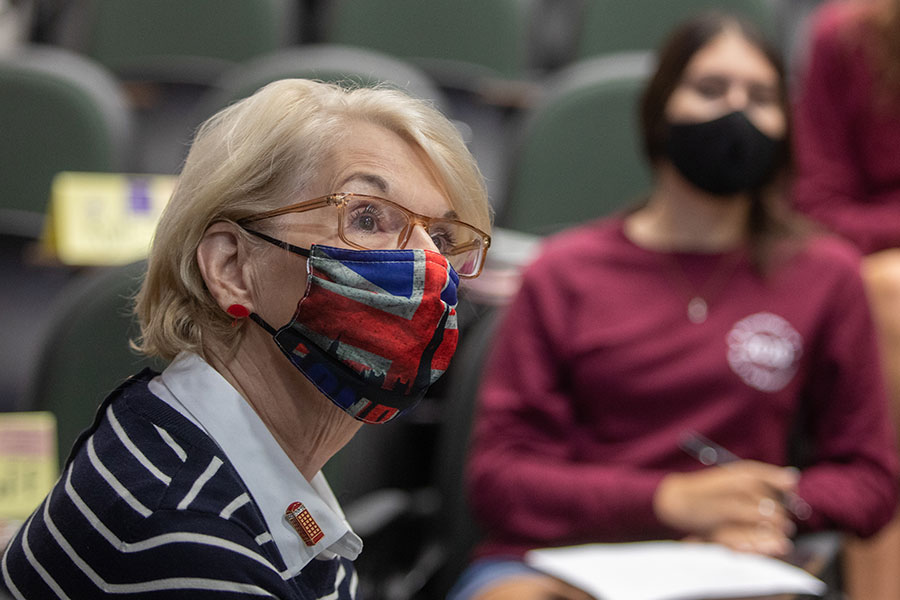
Florida State University College of Nursing Professor Sally Karioth has spent the past 50 years practicing and teaching trauma and grief work.
Now, as Karioth celebrates the rare milestone of teaching at FSU for five decades, the COVID-19 pandemic lingers month after month with no end in sight. Karioth said a myriad of factors are contributing to people’s stress, anxiety and feeling out of control.
“What we’re dealing with is a world that doesn’t know what to expect next and has no workable plan to make this virus go away,” Karioth said. “That, along with isolation, loneliness, fear, boredom and helplessness, can create profound feelings of loss and grief.”
Karioth, who helps people cope with the death of loved ones in private practice, has also taught more than 26,000 students how to do the same in her “Death, the Individual and the Family” course and her healthcare-related public speaking course.
This semester, she’s teaching a total of five classes, all in-person.

“It’s quite a unique semester,” Karioth said. “One of the reasons I’m teaching face-to-face is because I wanted to at least try to offer some semblance of normal for students who are used to having the university offer a setting for studying together, making connections and learning how to be independent. For most of these students, every other class they’re taking is online and if there’s ever a time when they need to at least be in the same room as some of their peers, it’s now.”
Karioth is no stranger to public speaking. An often-sought television and media personality, she’s been in two award-winning films and is a frequent commentator and expert on traumatic worldwide events.

“What’s happened during the pandemic, of course, is that we are seeing a world where the rules change daily and the uncertainty causes anxiety, distrust, anger and sadness,” Karioth said. “What I’ve done with these classes is really spend a lot of time on using therapeutic communication and trying to have the students understand others and their feelings.”
As students face the pandemic while completing their studies, Karioth has come up with unique ways to foster engagement in the classroom.
“There’s some basic grade school techniques I’m using, like name cards, assigned seats, motivational stickers, treat bags, class t-shirts; anything to help them feel engaged while sitting six feet apart,” Karioth said. “I have such faith in these kids. It’s going to be them who will have to save the planet when we’re gone, so I’m trying to equip them with tools for what to do when they need a plan B, C or D.”
Something that Karioth has had to tackle in her classes and practice is the pandemic’s drastic effect on the grieving process. Grief is a normal response to loss during or after a disaster or traumatic event. It can happen in response to loss of life, as well as to drastic changes to daily routines and ways of life that usually bring people comfort and a feeling of stability.
Because of the pandemic, people are unable to be with a loved one when they die or to mourn their death in-person with friends and family. Grieving the loss of a loved one while coping with the fear and anxiety related to the COVID-19 pandemic can be especially overwhelming. When these losses happen at the same time, they can complicate or prolong grief and delay a person’s ability to adapt, heal and recover.
Karioth suggests alternative ways to grieve, such as ‘ritual leave-taking’, where people write letters that say the things they wanted to say to the person they have lost, journaling, making personal memorial altars and art work, planning a virtual celebration of life, making a playlist of favorite music and sharing it with others in memory.
“Grief, like trauma, is an idiosyncratic experience, meaning everybody does it differently,” Karioth said. “You don’t get to tell someone that they’re doing it wrong because the grieving process is personal and based on the individual. The only thing you can do wrong when someone suffers a great grief is to do nothing. Always find a way to validate someone’s loss.”

Despite the pandemic and the challenges it has presented, Karioth notes that the resilience of her students, both former and current, is unmatched.
“Regardless of the impediments that are in our way, we only have one job, and that’s to keep on going,” Karioth said. “These kids are going to go out into the world and do amazing things, and let their voices be heard. They need to know what I’ve been saying for 50 years — I’m always here and they can do hard things. My job is to keep them always believing that as they move forward.”
In honor of Sally Karioth’s 50 years of teaching and making a difference to so many, the College of Nursing has established an Endowed Lectureship in her name. We invite you join us in honoring her by making a gift to the Sally Karioth Distinguished Speaker Lectureship at http://give.fsu.edu/karioth. For more information about the FSU College of Nursing, visit nursing.fsu.edu.




